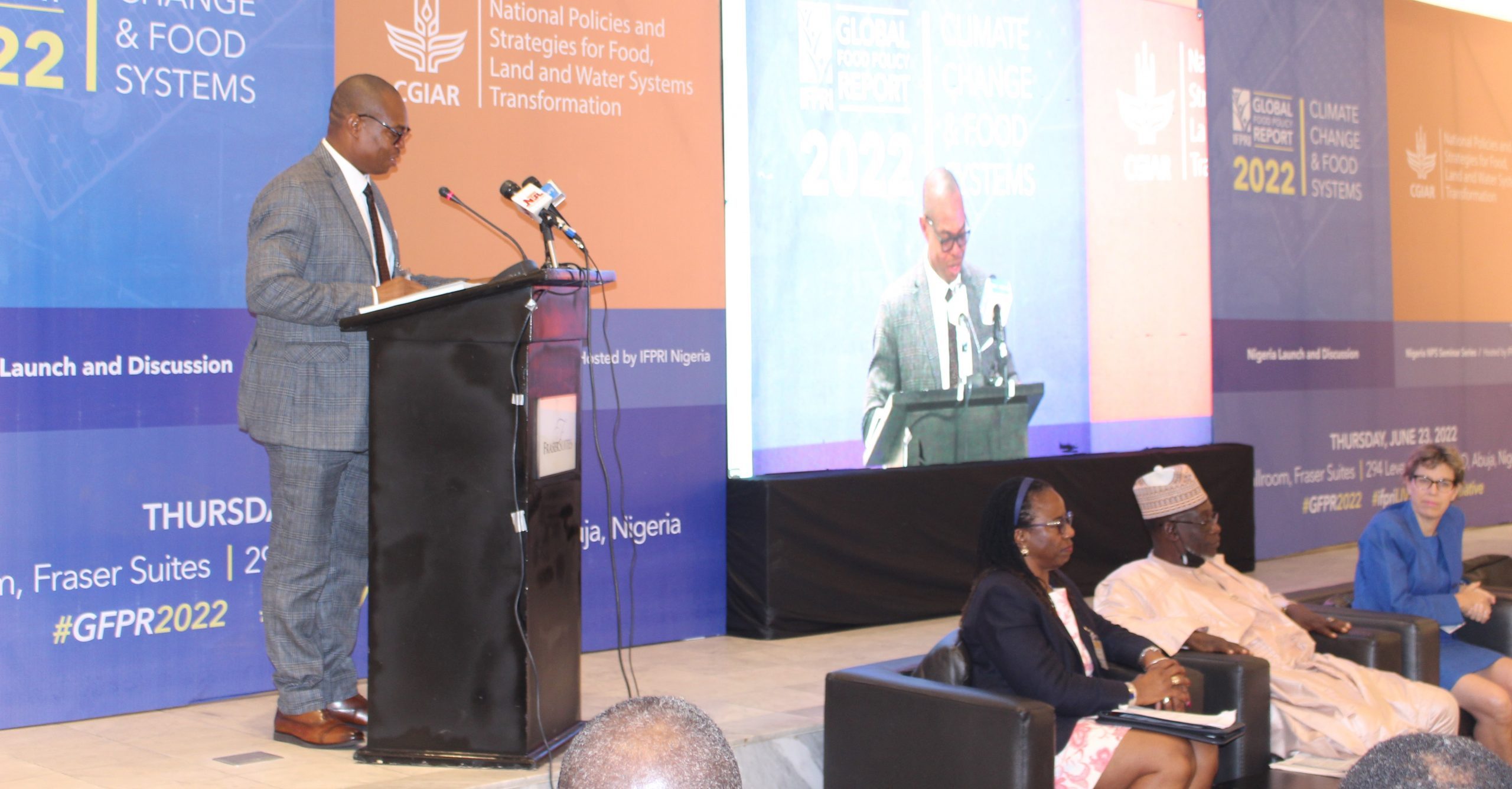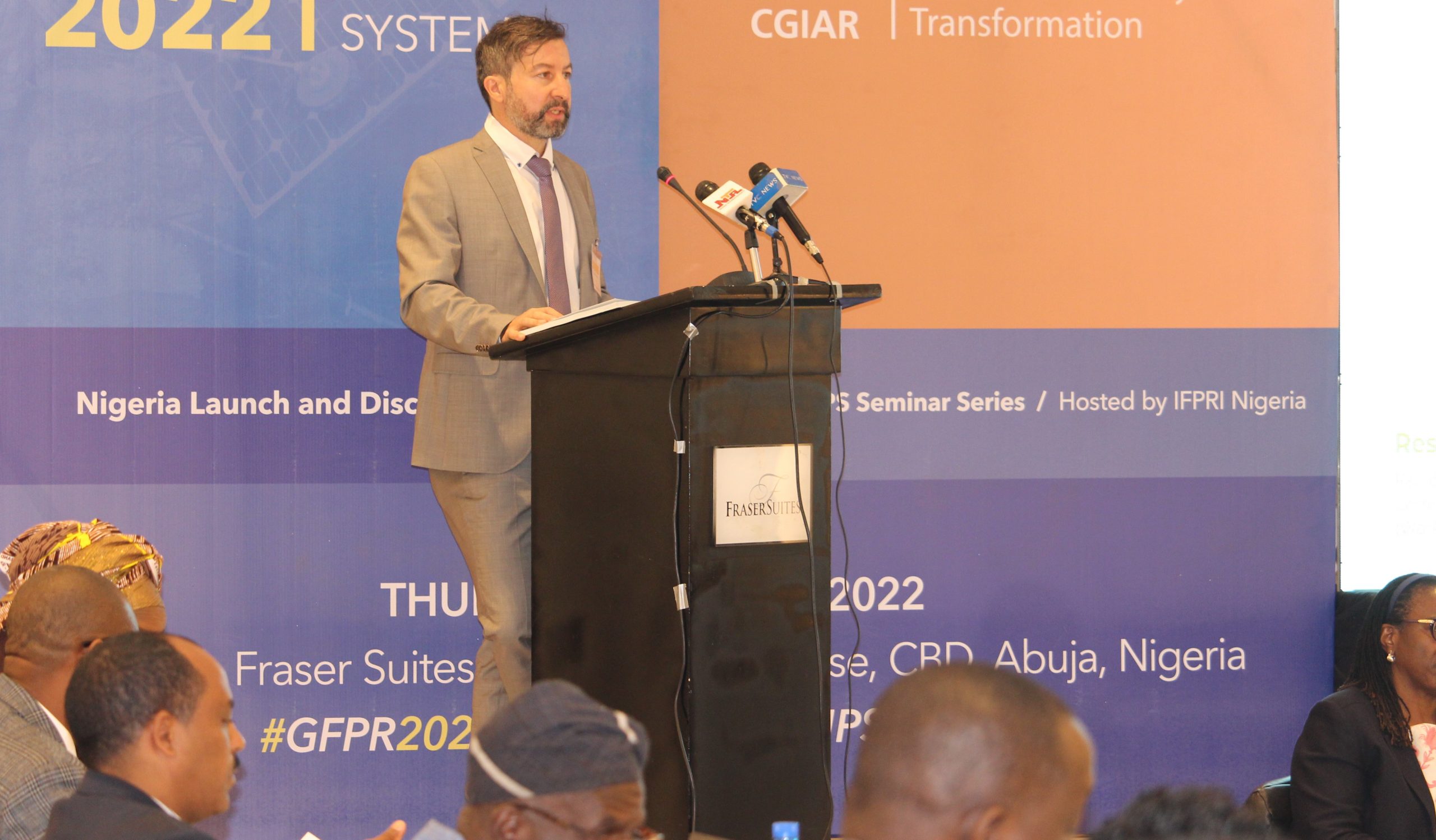
On 23 June 2022, the Nigeria Inception Workshop of the CGIAR National Policies and Strategies for Food, Land and Water Systems Transformation (NPS) Initiative1, took place in Abuja. The workshop, following the initiative’s global launch in May 2022 in Kenya, introduced NPS’ work in Nigeria, launched the Nigeria NPS Seminar Series, and featured presentations on the various CGIAR initiatives and stakeholder group discussions. Several participants representing the Government of Nigeria, civil society actors, researchers, and development practitioners were in attendance. Participants and stakeholders from Nigeria, along with the NPS initiative team and other CGIAR initiatives, were brought together at the inception event to brainstorm strategies to achieve the priority areas of the NPS initiative, including Building policy coherence and integrating policy tools and Responding to crises.
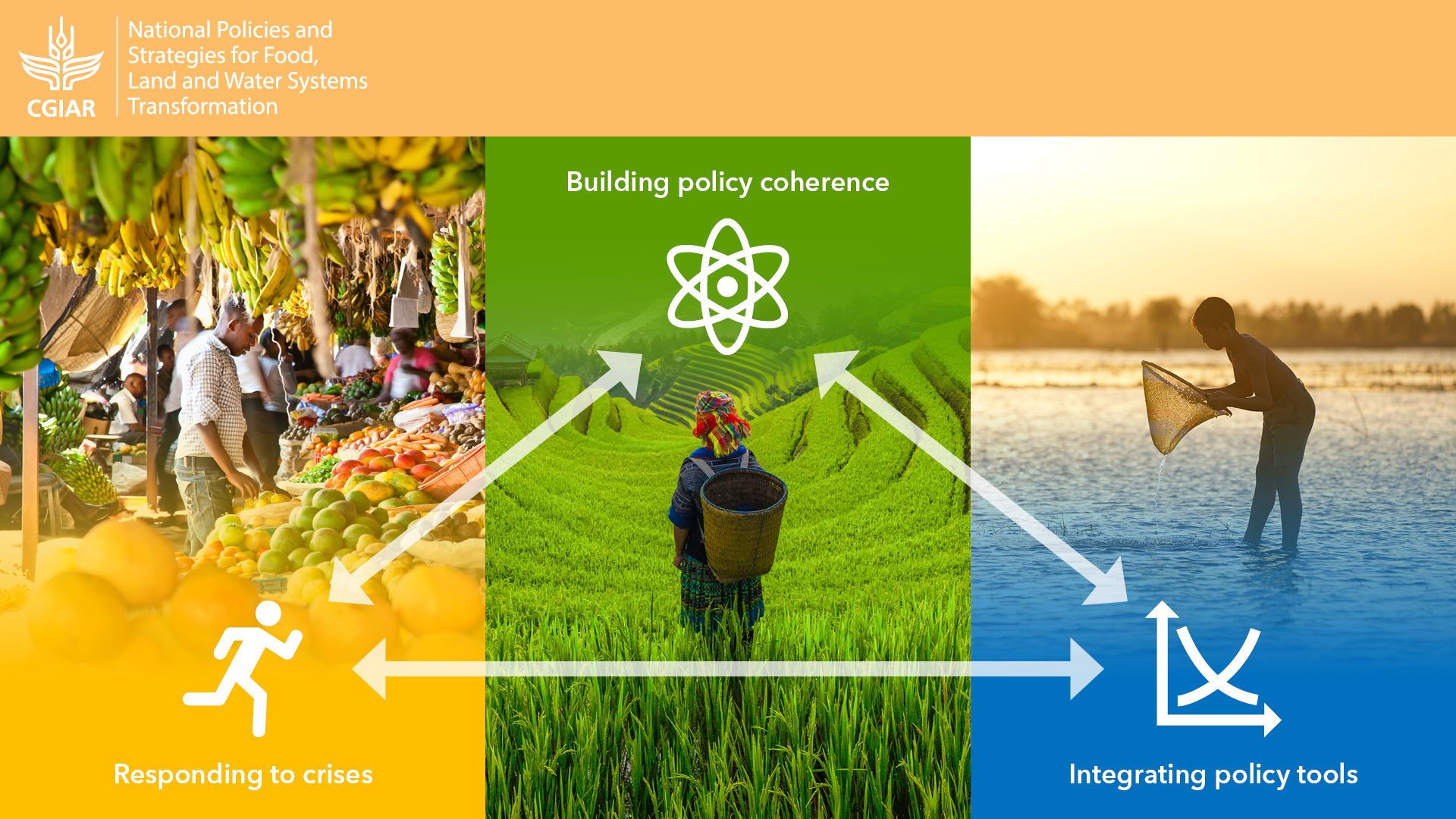
The NPS Initiative Global Lead, Clemens Breisinger, noted that. is informed by decade-long cross-country learning and collaboration and carefully focuses on each of its six countries’ demands and needs. Importantly, NPS has very strong technical teams on the ground in each country to closely work, in a collaborative way, with in-country partners towards achieving joint goals.
Photo credits: Adetunji Fasoranti/IFPRI
Kwaw Andam, IFPRI-Nigeria Country Program Leader and NPS Nigeria Initiative Lead, shared the expected outputs and key partners and presented the three priority areas of NPS. He explained three core research questions vis-à-vis the implementation of the NPS priority areas in Nigeria:
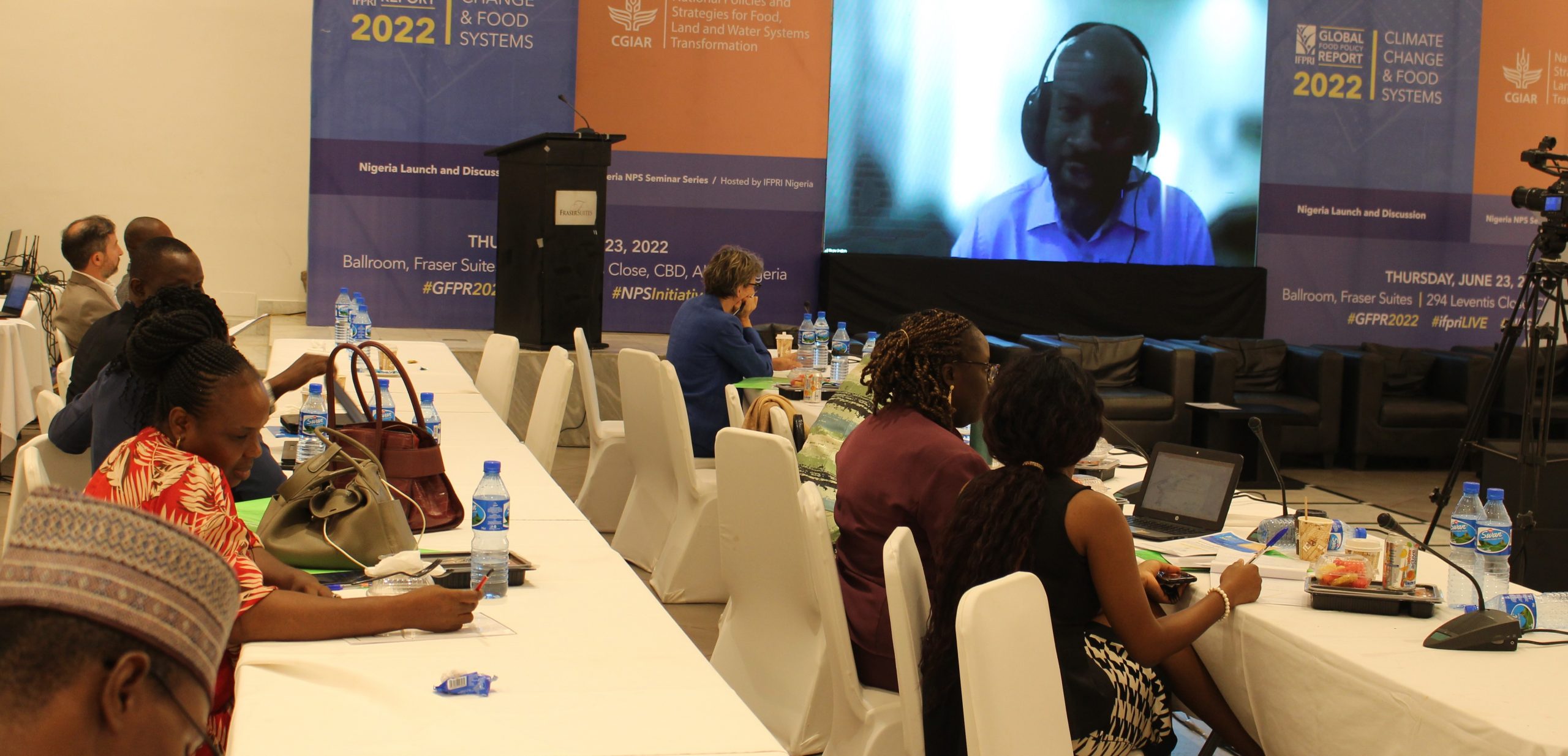
Photo credits: Adetunji Fasoranti/IFPRI
- What are the areas of coherence and incoherence in policies that impact food, land, and water systems in Nigeria? And, how can these be prioritized?
- What are the priority investments needed to achieve state and federal policy objectives in Nigeria?
- What to do at the time of a crisis to mitigate negative effects (ex-post, short-term analyses, <1 year)? And, how are systems are set up to ensure the effective mitigation of negative effects (ex-ante, medium-term analyses, 2-5 years)?
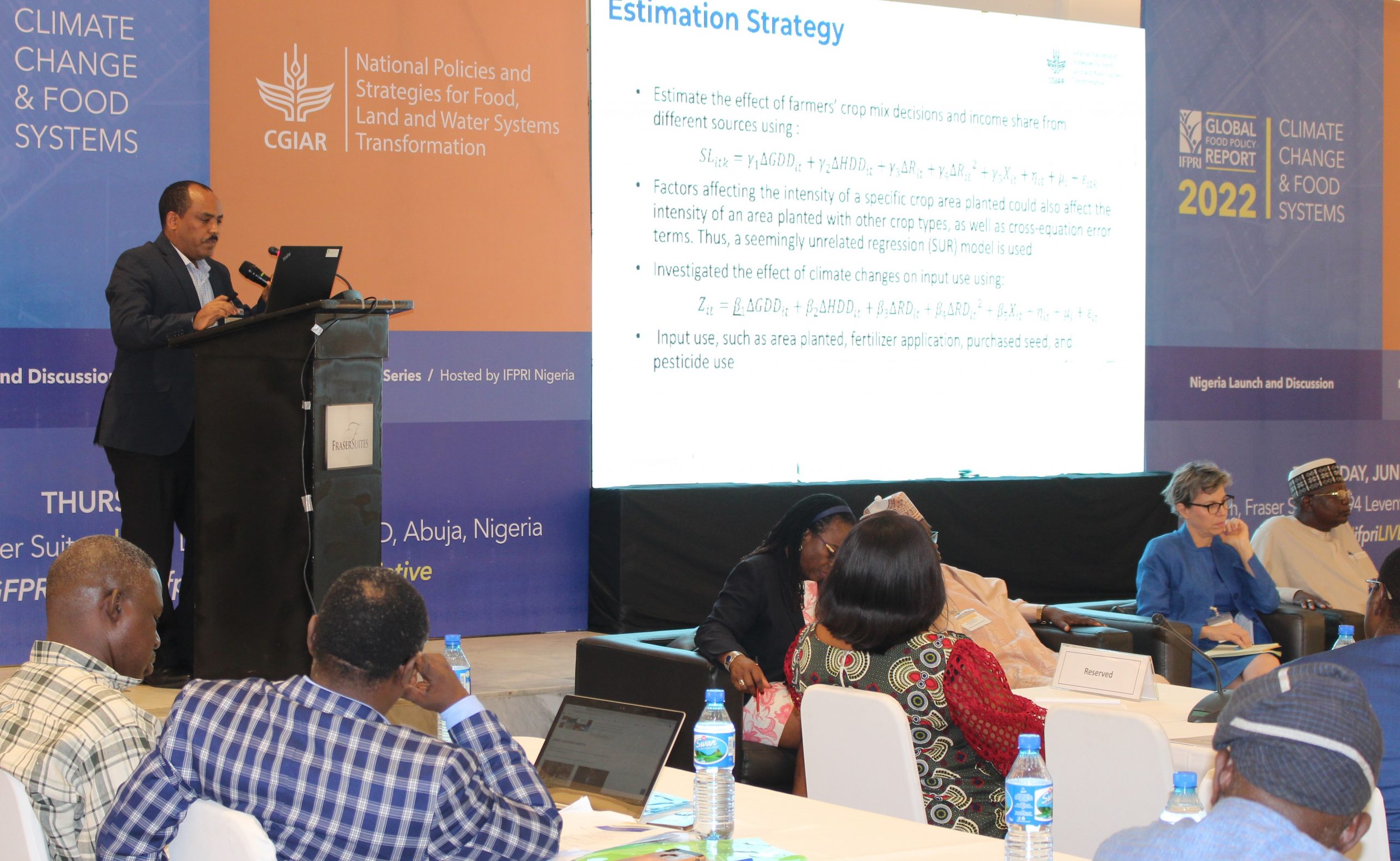
Photo credits: Adetunji Fasoranti/IFPRI
The Nigeria NPS Seminar with the theme, “Towards Resilience and Food System Transformation in Nigeria”, featured two main research presentations, namely, “Climate Change, Income Sources, Crop Mix, and Input Use Decisions: Evidence from Nigeria” by Mulubhran Amare and “Impacts of Ukraine and Global Crisis on Food Systems and Poverty in Nigeria” by Kwaw Andam
The inception workshop also featured presentations on the policy components of various CGIAR Initiatives focused on Nigeria2. In his comments, Senior Special Assistant to the President on Agriculture of the Office of the Vice President, Andrew Kwasari, stated that “research should be a problem-solving tool to reduce poverty and unemployment rates and subsequently, promote economic development”. For impact and outcome sustainability, he urged CGIAR initiatives to enhance their engagement and collaboration with local experts, stakeholders, government agencies, local research institutes, and sub-national institutions, particularly during the design and development stages. This was further highlighted by John Ladong, of the Federal Ministry of Agriculture and Rural Development (FMARD) and Prof. Olomola Aderibigbe, of the Nigeria Institute of Social and Economic Research (NISER), both of whom stressed the need to strengthen collaborations between CGIAR initiatives, FMARD and local research institutes in Nigeria, especially where there are synergies and similarities in agendas.
A breakout discussion session also took place. It included three discussion groups, each themed with one of the NPS priority areas.

Photo credits: Adetunji Fasoranti/IFPRI
Each group aimed at identifying the important actors and stakeholders working on the priority area, as well as the key actions to be taken to accomplish NPS’ targets. Discussions emphasized the need for coordination, engagement, and finding synergies across research organizations, government ministries, policymakers, legislature, private sector actors, policy beneficiaries (e.g., farmers, community-based organizations), and other relevant stakeholders, to facilitate policy development and implementation in Nigeria. The impacts of such cooperation would also, importantly, extend to improving data management. The latter would address specific data-related issues such as limited greenhouse gas data, conflicting datasets, the challenge of gathering relevant data across different sectors, and limited data on production, consumption, and export rate for certain crops. A further emphasis from the discussions included the importance of strengthening human and institutional capacity within the relevant public institutions for better outcomes and augmentation of effective policy research
In closing remarks, Kwesi Atta-Krah, CGIAR Country and Engagement Lead for West and Central Africa challenged the NPS team to work towards facilitating the policy engagement of CGIAR initiatives in Nigeria and strategically identify the stakeholder and partner groups that can be champions in helping to achieve the outlined objectives.
National Policies and Strategies would like to thank all funders who supported this research through their contributions to the CGIAR Trust Fund.
1 CGIAR launched NPS with national and international partners to build policy coherence, respond to policy demands and crises, and integrate policy tools at national and subnational levels in six countries in Africa, Asia, and Latin America. CGIAR centers participating in NPS are The Alliance of Bioversity International and the International Center for Tropical Agriculture (Alliance Bioversity-CIAT), International Food Policy Research Institute (IFPRI), International Livestock Research Institute (ILRI), International Water Management Institute (IWMI), International Potato Center (CIP), International Institute of Tropical Agriculture (IITA), and WorldFish.
2 This included initiatives focused on the following themes in Nigeria: Providing evidence on conflict-climate gender-sensitive policies; Promoting gender equality, equity, and nutrition through intelligence; Protecting the agri-food system; Investing in effective aquatic food system governance; Supporting the delivery of seeds of improved climate-resilient and nutritious varieties of priority crops; and Policies and market behaviors for effective value chain with fairer income sharing and job creation, among others.

